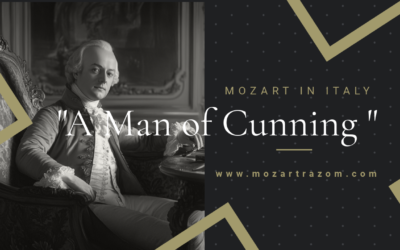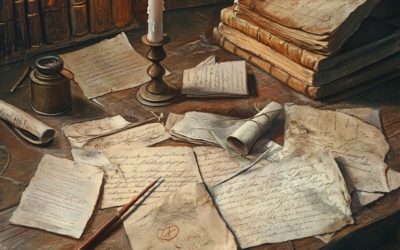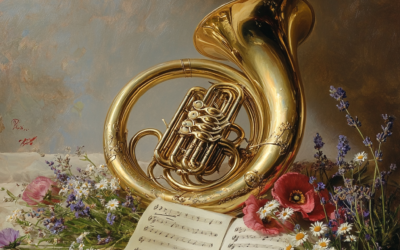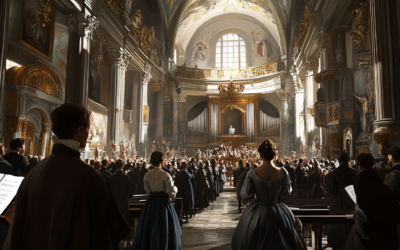Rewriting Mozart
A Revealing New Interview on His Thematic Catalogue
Introduction
Welcome to MozartrazoM, your source for in-depth research and fresh perspectives on Wolfgang Amadeus Mozart. We’re excited to present a brand-new interview that challenges many of the long-held assumptions about Mozart’s Thematic Catalogue (1784–1791). Conducted by Swedish journalist Henry Grynnsten, this conversation delves into groundbreaking forensic techniques—like advanced ink analysis and digital image processing—that may change the way we view Mozart’s late works.
"The fact is, once you start examining the Catalogue with modern tools, multiple authors become an extremely plausible reality. We see inconsistencies in the formation of musical clefs, discrepancies in the inks, and even vocabulary usage that doesn’t match Mozart’s letters."
Interview Excerpt
What You’ll Discover
- Surprising Inconsistencies: Learn how subtle differences in handwriting and ink usage raise questions about the Catalogue’s authenticity.
- Multiple Hands at Work?: Explore the possibility that Mozart’s Thematic Catalogue may have been compiled posthumously by different contributors, rather than by the composer himself.
- Far-Reaching Implications: Understand why re-evaluating the Thematic Catalogue could radically alter our view of Mozart’s late compositions—including the Clarinet Concerto and the “Jupiter” Symphony.
- Methodology and Technology: Gain insight into the cutting-edge forensic and digital analysis methods used by our team of musicologists and forensic specialists.
Curious to read the full story? Download the complete PDF below.
Click here to download the PDF interview (no registration required)
Meet the Researchers
The interview features Dr. Luca Bianchini, Dr. Anna Trombetta, and Prof. Martin Jarvis—a team of experts from the fields of musicology, palaeography, and forensic document examination. Their combined expertise offers a riveting new lens through which to study one of classical music’s most celebrated figures.
Interested in More?
- For detailed forensic evidence and further discussion, feel free to contact us directly.
- Follow us on social media for updates on upcoming articles, interviews, and events related to Mozart scholarship.
Join the Conversation
We’d love to hear your thoughts on these findings! Leave a comment below or share your reactions with us on social media. Let’s keep the dialogue alive and explore Mozart’s musical legacy from every possible angle.
Thank you for visiting MozartrazoM. We hope this interview sparks your curiosity and enriches your understanding of Mozart’s remarkable, yet still mysterious, life and work.
You May Also Like
A Revolutionary Encounter at Cremona Musica
Sharing insights on Mozart and the Neapolitan school at Cremona Musica, the premier global stage for music and culture.
#1 A Man of Cunning
In the end, Leopold Mozart’s life was a testament to survival in a world where his talents were often overshadowed by those of his more gifted contemporaries and his own son. While his “Violinschule” remains a notable contribution to music pedagogy, it is clear that Leopold’s legacy is as much about his ability to navigate the challenges of his time as it is about his musical achievements. His story is one of ambition, adaptation, and the lengths to which one man would go to secure his place in history, even if that place was built on borrowed foundations.
@MozartrazoM
Mozart’s Letters: A Legacy of Disappearances, Edits, and Forgeries
Mozart’s letters reveal missing originals, questionable authorship, and forgeries, adding complexity to his legacy.
The Curious Case of Mozart’s “Lullaby”
Though long credited to Mozart, the lullaby “Schlafe mein Prinzchen, schlaf ein” hides a murky history. Initially published by Nissen, Constanze’s second husband, it has endured as one of Mozart’s supposed works—despite a trail of doubts. In 1798, Constanze herself noted sending “another piece of Mozart’s in place of the lullaby,” raising questions about its origins. By the 20th century, researchers revealed it as the work of lesser-known composers, yet it remains deceptively tied to Mozart, its myth surviving through mere footnotes.
The Contradictions Behind Mozart’s Horn Concerto K.412
The authenticity of Mozart’s Horn Concerto K.412 remains hotly debated, as the work bears numerous contradictions in its manuscript history. The first movement may be original, but what about the rest? The inclusion of Franz Xaver Süssmayr and later editorial meddling raises serious questions about what we are really listening to when we hear this ‘Mozart’ concerto.
The Questionable Attribution of Mozart’s Offertorium K.34
Attributing Offertorium K.34 to Mozart is not just misleading, it reflects the careless methods used by 19th-century scholars to inflate his legacy. Without an autograph or solid evidence, this work should not be considered part of his output.”







